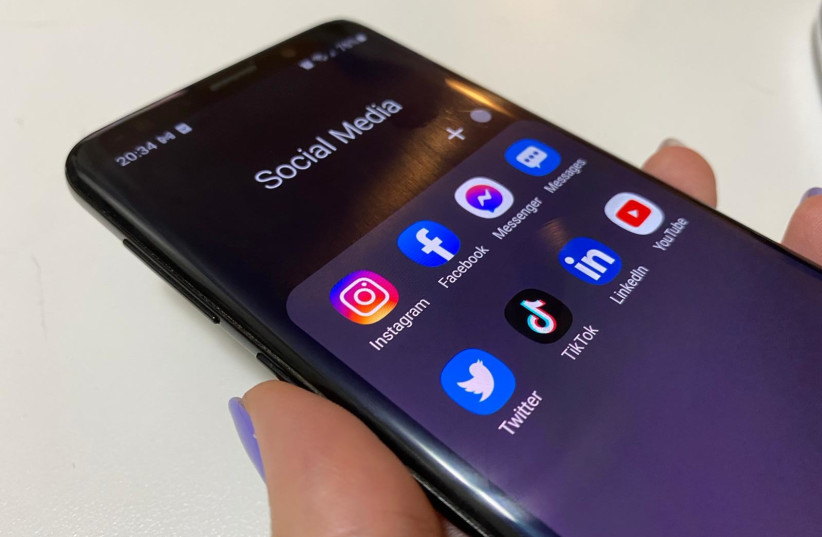In the 21st century, it is no longer possible to separate between the online and offline realms of diplomacy, as digital publics now turn to social media to learn about events and actors shaping their world. For this reason, foreign ministries throughout the world have migrated to social media sites such as Twitter, Facebook, YouTube and TikTok, hoping to engage with digital publics and shape their worldviews.
Diplomats’ use of social media, also known as digital diplomacy, seeks to leverage these platforms toward the obtainment of offline policy goals, ranging from increasing foreign investments to being elected to the UN Security Council.
Israel’s Foreign Ministry is no stranger to digital activities, and has been regarded as a digital pioneer. Yet current struggles over the ministry’s budget and resources threaten to cripple Israel’s digital efforts.
Since 2009, the Foreign Ministry has created a social media empire that spans dozens of accounts across numerous digital platforms. The ministry’s digital diplomacy unit is charged with three main tasks. The first is shaping public perceptions of Israel and its foreign policies, both in the region and the world. Importantly, social media are competitive environments in which diplomats from many states vie over the attention and support of digital publics. These online competitions have important implications in the offline world.
For instance, Israel’s digital diplomacy unit is currently conducting a global campaign aimed at impacting the negotiations on Iran’s nuclear weapons program, and ensuring that a new Iran deal will not harm Israel’s national interests nor its national security.

At the same time, US, Russian and Iranian diplomats are also active on social media portraying a possible agreement as an important step toward regional stability and renewed dialogue between Iran and the world. The results of this online competition will translate into an agreement that either ensures or forsakes Israel’s security concerns.
The digital diplomacy unit’s second responsibility is managing Israel’s global image in times of calm and crisis. National images that are crafted online also shape the offline world. Nations associated with positive norms and values are less likely to encounter resistance to their foreign policies, including the use of military force. Yet nations that are seen as international pariahs find it all but impossible to obtain their foreign policy goals or create partnerships in international forums such as the UN.
HERE AGAIN the digital realm plays an important part. Through social media, nations can identify the values they adhere to and demonstrate how these values shape their day-to-day policies. Through its vast network of social media profiles, the Foreign Ministry promotes a positive image of Israel as a hub of ingenuity and tolerance in a region populated by despots. Most noteworthy is the digital diplomacy’s unit success in reaching and engaging with millions of social media users in the Arab world.
Managing Israel’s image is especially crucial in times of crises, such as during altercations with Hezbollah. Israel’s ability to obtain military goals rests on the support or condemnation of global publics. When digital publics begin to criticize Israel, their governments soon follow, leading to international pressure on Israel to halt its military activities. It is the digital diplomacy unit that is responsible for rallying online publics to Israel’s side, while preventing other actors, such as Hezbollah or Iran, from doing the same.
Finally, the digital diplomacy unit is responsible for stemming the tide of antisemitism on social media. This is a monumental task, as it is estimated that every 30 seconds, some form of antisemitic content is uploaded to social media. Israeli diplomats employ a host of digital technologies to remove social media content that calls for violence against Jews.
The unit also negates conspiracy theories that link Jews to global financial domination, and refutes accusations that Jews are hoarding COVID-19 vaccines or profiting from the COVID-19 pandemic.
Since its establishment, the digital diplomacy unit has pioneered the use of innovative technologies. Israeli diplomats have authored social media algorithms, employed big data analysis to craft Israel’s image, and relied on artificial intelligence to shape online public discourse. Yet digital activities demand that foreign ministries are adequately financed.
Digital activities are costly, since diplomats must continuously follow the activities of other states and negate their narration of events. Diplomats must also monitor and influence online news coverage; they must dedicate time to conversing with online publics through social media sites, and they need to find ways to automate the struggle against hateful and viral content.
When people hear that foreign ministries are struggling with limited budgets they imagine that diplomats will have to make do with fewer cocktail parties, less expensive china or a reduced expense account. But Israel’s digital capabilities are also hampered when diplomats’ budgets are slashed and wages are cut.
And all is abuzz on the digital front. Every day sees the publication of thousands of false new stories, conspiracy theories and trending videos that undermine Israel’s international standing and its credibility.
Without adequate resources, Israel will fail to garner the support of digital publics and will morph into an international pariah. For this reason, Israelis and their government cannot forsake the Foreign Ministry and the digital front.
The writer is a digital diplomacy scholar and a lecturer at the Department of Communications at Ben-Gurion University of the Negev. His book, The Digitalization of Public Diplomacy, was published in 2019.
